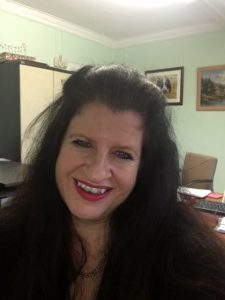Heather Rogers is an accountant, tax practitioner and Expert Witness. Most of her cases involve director disputes or professional negligence where there is a financial element. She runs her own consultancy, Aston Accountancy Limited.
I’ve been self-employed as a tax practitioner and accountant for over 30 years.
I also write articles for various publications, including This Is Money. My writing work was what led me to becoming an Expert Witness.
I was collaborating with another accountant on some research for an article, and he mentioned Expert Witness work and that he thought I’d be good at it. I was flattered, but didn’t think much more of it.
But he had clearly sparked my interest. Shortly after, when I saw an advert online for Expert Witness training courses, I decided to sign up. I completed the training online with the Expert Witness Institute in 2020 during various lockdowns.

Everyone doing my Expert Witness training came from different fields of expertise.
The training was so helpful and really did give me a good grounding. Going forward, being an EWI member has meant that I’m kept up to date with any changes in the Expert Witness field. Anybody considering doing Expert work needs to belong to the EWI!
Understanding that you are an independent is the most important thing.
You're not working for a lawyer. You're not an advocate. You’re independent. Being an Expert Witness is not about being popular. You've got to act on your own.
As a tax practitioner, I'm used to being more of an advocate for my clients. There are cases where I may go to tribunal and I'm acting for my client. So being an Expert Witness is a very big mindset change.
My biggest tip: if you haven't reviewed evidence yourself, then you can't rely on it.
My first case was a director dispute where one director was accusing the other of misappropriation of company funds. Another Expert Witness had already been involved and prepared a large number of schedules, which I was provided with. They were very comprehensive, but I didn’t trust them because I hadn’t reviewed the evidence myself.
I went through every piece of paper time and time again to make sure that I hadn’t missed anything.
While that case was quite easy for me to conclude that fraud had taken place, it also showed me that it is important to give appropriate weight to all the evidence in front of you. The other director hadn’t been perfect, and I didn’t brush over that.
Going to court is a very important experience.
Most of my cases get settled out of court, but when I do go, I remind myself that it’s not about me. I’m there to give my opinion. Barristers will often try to discredit Experts. Your cross examination will fall apart if you are not master of your report.
You don't want to be in a position where they can discredit your report on something like a typo or a lack of consistency in terminology. Whatever style you choose, you need to stick to that throughout the process. And don’t let the solicitor tweak your report!
Your Expert Report should completely reflect your opinion.
An Expert Witness will fall apart in court if they write a report that reflects what their instructing solicitor wants them to say. You will look foolish if you try and defend a report that is not your opinion.
It's important to show how you've reached your opinion.
You can have a really good report that might come to the ‘right’ conclusion, but if you don’t explain how you got there and what your reasoning is, it could be a complete disaster. If you don't explain matters, you could look silly and the judge will make that quite apparent!
Remember that you're trying to explain complex matters to people outside your field of expertise.
It's very important that an Expert Report is in plain English and uses words that make sense. There's no point using the latest jargon.
A case that changed my approach to Expert work…
It involved two directors who had started out as great friends. There were a huge number of documents for me to review and when I’d gone through them all and formed the basis for my report, another load arrived! The new evidence completely changed my opinion.
The case made me realise that it’s very important to clarify what documents you have had access to. It’s always OK to change your opinion. And it’s also OK to say that you feel unable to form an opinion based on what you’ve been provided.
I don't have very typical days!
I love the variety of my work. I could be writing an article for This Is Money and a solicitor could ring me out of the blue asking me if I’ve got five minutes — which usually ends in me agreeing to provide Expert evidence for a case. I’m always having to reschedule my diary!
Being an Expert Witness may be small part of my business, but it's a very important part.
I think it's an honour to be able to help, provide a public service and be a part of the justice system.